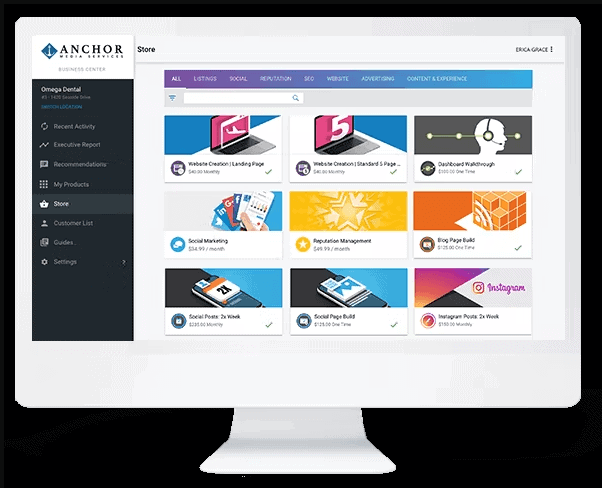
Essential Tips For Managing Your Business Expenses In A Tight Economy
- Business
- Aug 12
- Share post

Looking for ways to trim your business expenses in a tight economy? It’s a challenging time for businesses of all sizes, but that doesn’t mean you can’t thrive. Managing your business expenses in a tight economy isn’t easy, but it’s not impossible either. If you own your own business, you probably know that things can get difficult when the economy isn’t booming. In such times, it is even more important to keep track of your business expenses and to figure out where the money is going. Understanding your business’s cash flow is instrumental in staying on top of your finances and keeping things under control, no matter what the market looks like. In this article, we will discuss some essential tips that will help you manage your business expenses in a tight economy.
Have A Clear Business Plan
If you don’t have a clear business plan, it will be difficult to understand where all your cash is going and how to trim your spending if needed. A business plan is a tool that will help you to understand your business’s cash flow, as well as its projected profitability and risk factors. From there, it’s easier to establish where your business’s money is going and where you can cut back if needed. Ideally, you should re-evaluate your business plan on a regular basis to reflect on your current situation and keep it up-to-date. This will make it easier for you to identify areas where you can save money.
Track Expenses Diligently
One of the first steps toward managing your business expenses in a tight economy is to track your expenses diligently. You can do this either manually or with the help of a software program. If you are doing it manually, you might want to consider switching to a program if it’s feasible. An easy way to do this is to create categories and sub-categories for all your expenses, with each one having a label. In this way, it will be easier to keep track of how much money you are spending. The more you track your expenses, the easier it will be to identify areas where you can save money.
Utilise Virtual Company Cards
If you use company cards for business expenses, you may want to consider switching to a virtual company card. Virtual company cards are a great alternative to traditional cards. Virtual company cards are not new, but they are starting to gain popularity. You can use a virtual Visa card for both business and personal purchases and pay off your balance each month. Virtual company cards come with many of the same benefits as traditional cards, but they also come with several benefits you don’t get with traditional cards, such as being able to connect them to as many devices as you want and being able to more accurately track business expenses. To learn more about how to get a virtual card and the benefits of using one for your business, check out Payhawk. They have excellent resources and services that you can use to learn more about managing your expenses.
Keep Up-To-Date Accounting Records
 Managing your business expenses is important, but managing your expenses isn’t enough. It is also crucial to keep up-to-date accounting records so you can see how your money is being spent. That way, you can understand your business’s cash flow and avoid overspending. Keeping up-to-date accounting records is also a good idea because it will help you make informed decisions in the future. If you want to expand your business in the future, you will have records to help you make wise decisions.
Managing your business expenses is important, but managing your expenses isn’t enough. It is also crucial to keep up-to-date accounting records so you can see how your money is being spent. That way, you can understand your business’s cash flow and avoid overspending. Keeping up-to-date accounting records is also a good idea because it will help you make informed decisions in the future. If you want to expand your business in the future, you will have records to help you make wise decisions.
Control Stock
If you’re in the business of selling physical products, you may want to consider controlling the amount of inventory you keep on hand. Doing so will help you manage your business expenses. That’s because inventory can be very expensive. Having too much inventory on hand can also be problematic. It can tie up a lot of your money and make it difficult for you to pay your other expenses. To help you keep an eye on your inventory levels and manage your expenses, consider using inventory management software. This software can help you track your inventory levels and make sure you don’t keep too much inventory on hand.
Tackle Problems When They Arise
It’s easy to get into a routine when managing your business expenses. You may have a certain way of doing things and a specific way of managing your finances. While that’s a good start, it’s important to keep an eye out for potential problems and tackle them when they arise. For example, if your revenue drops, you may need to cut back on your expenses so that you don’t end up in debt. You may also want to consider ways to expand your revenue, such as finding new customers or increasing the amount you charge for services. You can also look for ways to reduce costs, such as negotiating with your vendors or changing your insurance provider.
By Michael Kilgour
Categories
- Advertising and Marketing
- Business
- Business Products & Services
- Buyers' guide
- Employment
- Finance
- Franchising
- Health & Fitness
- Health Care & Medical
- International
- Internet Services
- Investment
- Professional
- Real Estate
- Sellers' guide
- Software
- Technology
- Tips and Advice
- Top Pick
- Web Resources
- White label guide
Looking for business opportunity to start your own business? Check these out!
Recommended reading







